It turns out that the coffee we are drinking now is all Nordic coffee!
For professional baristas, please follow the coffee workshop (Wechat official account cafe_style)
The polar day and night in northern Europe can give people the illusion that time loses its unit of measurement and everything goes by feeling. So coffee became an opportunity and an indispensable foil.
It is rumored that Nordic people drink 1200 cups of coffee a year, an average of four cups a day. They are either in a coffee shop or on their way to a coffee shop.
Last time I came back from northern Europe, I met a Swedish Turkish. I took him to meet a friend of mine who owns a cafe and talked about what he knew about Swedish coffee. He said it was the opposite of the pronunciation of coffee and was called coffee coffee.
Europeans like to divide things into details, and the essence is that they look down on each other's culture and often fight over the origin of one thing. Based on this, the Swedes have also found a strict definition of fika, telling you that coffee and coffee are not the same thing.
What's the difference? Coffee is a cup of coffee, but coffee coffee in addition to coffee, there is a small snack, may be a biscuit, may be a piece of cake.
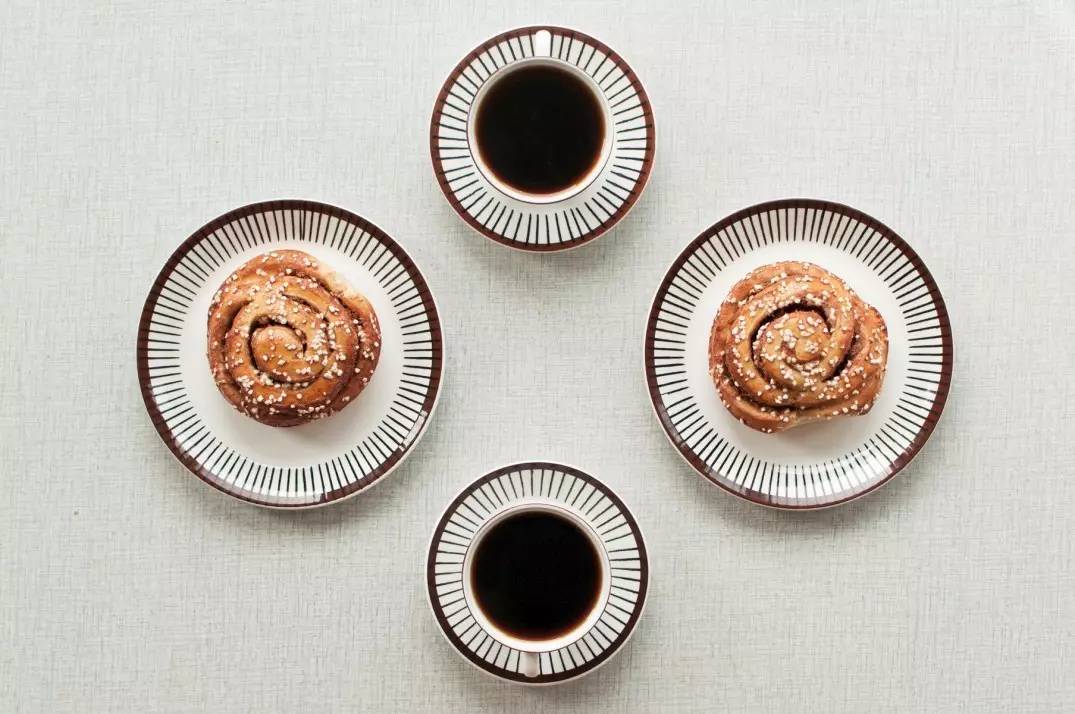
Come to think of it, coffee coffee became popular in our cafe before we knew the word. Order a cup of coffee with a snack. And I have also seen coffee shops that localize coffee. There is a cafe in an alley in Dongsi, Beijing, which serves coffee as well as a plate of melon seeds for you.
There is also a saying about coffee in northern Europe, that the average person in northern Europe drinks 1200 cups of coffee a year, about 4 cups a day. Many people are surprised, but if you have been to northern Europe in winter, you will feel that four cups a day is not enough, because it is too cold, the best cold drink is coffee.
I remember once when I went to Norway to see the aurora, the car drove all the way north into the Arctic Circle, with the warm wind still cold. At that time, everyone had a pot of coffee in his hand. Those who said they "can't drink coffee at night and can't sleep" are all silent. Drinking coffee in silence at night.
Everything is caused by the environment.
In the past, we said that coffee is Italian coffee, including Starbucks, but also brought the Italian concept to the United States. However, if we regard coffee as a growing coffee culture, then Italian coffee is actually a bit "backward". They advocate concentration and remain unchanged for 50 years. As a result, Nordic people who like to engage in innovation can no longer sit still and feel that coffee should keep pace with the times.
Innovation has many dimensions, storefront design can be innovated, coffee patterns can be innovated, and even the cups and plates used can be innovated, but Nordic people put the innovation dimension on coffee beans.
Coffee is fruit. This is what Nordic people say about coffee, and the opinion leader in this field is called Tim Wendelboe. He published the Nordic Coffee Tide, which defines Nordic coffee in detail. Espresso has ruled the world for many years, giving people a fixed impression that coffee is bitter. Even when writer Chen Danyan wrote about French cafes many years ago, she named the book with the title "is coffee bitter?"

But coffee is not bitter in nature. If you apply the concept in Chinese food, bitter coffee is roasted and burnt coffee. In the beginning, coffee beans are like the color of buds, which taste not bitter at all, but with a touch of sweetness that is not greasy. However, with the increase of baking time, the color of coffee beans changes, and the taste of coffee becomes heavier and heavier.
As a result, the roasting process of coffee has become a key factor for Nordic people to think about coffee. After all, northern Europe is so cold that it is completely impossible to grow coffee.

Since about 2000, many famous coffee shops from northern Europe have emerged, such as Java, Mocca, Solberg & Hansen and Tim Wendelboe. I saw a video interview with them on YouTube, and when they mentioned their contribution to coffee, they also said: we may not necessarily make a cup of coffee that suits your preference, but we may be really promoting the development of coffee.
Nordic coffee roasting is about the same as shallow roasting, which does not make the coffee bitter but restores more fruity flavor. As a result, Nordic coffee drank into the mouth, like a fruit bomb, under the fine taste, there is the taste of citrus, strawberry, pineapple. All kinds of fruit aromas flashed through the brain.
So Nordic coffee is used to taste coffee slowly, like drinking wine, take a sip into your mouth, do not rush to swallow, but stay for 10 seconds, every second you may taste unimagined fruit aroma.
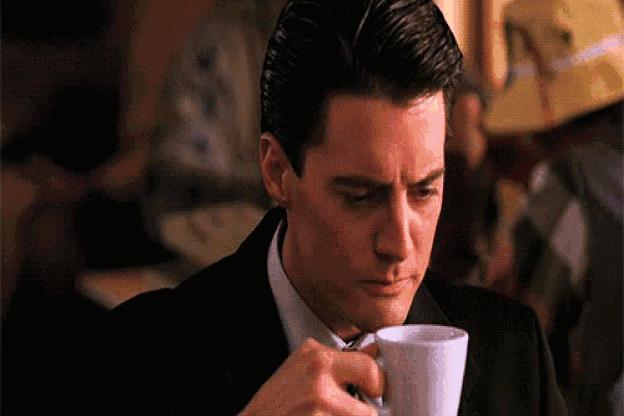
Don't guess in the baking smoke whether the coffee bean is from Ethiopia or Colombia, but to experience its acidity and fruity taste. After all, coffee is a fruit, not tobacco. This is Nordic coffee.
Today we are not in northern Europe, the coffee we drink may also be Nordic coffee, even if you are making a cup of creative coffee in Taipei, the source may be Nordic. With the rise of the Nordic Coffee Roasting Competition (Nordic Roaster Competition), people from outside northern Europe began to join the competition. A coffee shop in Taipei called FikaFika beat famous shops such as Tim Wendelboe to learn from others and won the championship.
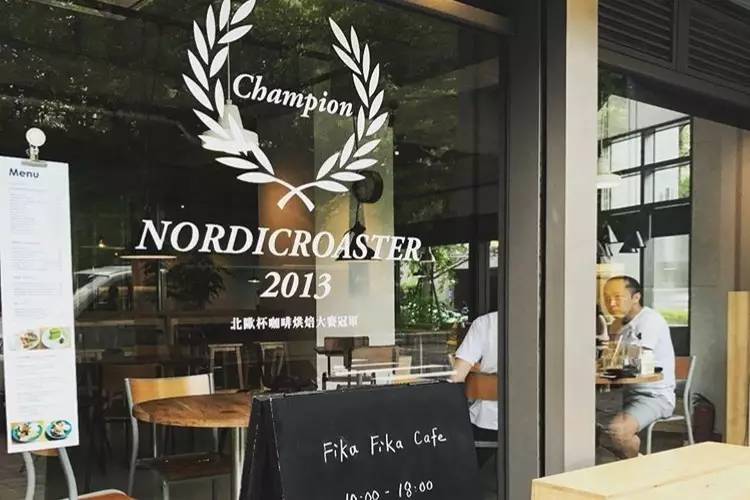
The Scandinavian coffee culture is neither as passionate as the Italian nor romantic as the French. Scandinavians drink coffee rationally, gently and methodically.
Among the five Nordic countries with the highest happiness in the world, there is a saying: "if I am not in a coffee shop, I must be on my way to a coffee shop."
Come on, follow me. The best cafes in northern Europe are all here.
In Mokka Kaffi, the world can be without Wi-Fi.

People who like mocha must not miss Mokka, because the most famous here are waffles and Swiss mocha, and everyone who comes here must order a drink. Even Icelandic singer Bjork once sang here. The only downside is that there is no Wi-Fi, and of course, it doesn't matter if you're not heavily dependent on the Internet.
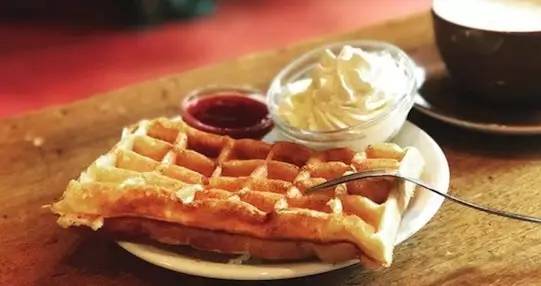
Address: Sk ó lav reust í gur 3A, Reykjavik
T í u Dropar, the oldest coffee shop in Iceland.
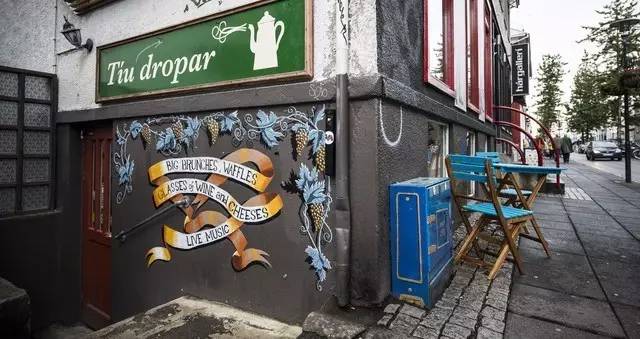
T í u Dropar, which means "ten drops" in Icelandic, is a secret cafe located in a basement in downtown Reykjavik. The cafe is small, but it has Nordic characteristics-antique furniture, old-fashioned pianos, dim lighting, and it is one of the oldest cafes in Iceland.

Address: Laugavegur 27, Reykjavik
Cafe KEX with multiple personalities

KEX is one of the coolest places in Reykjavik. It is both a youth hostel and a cafe and bar. KEX used to be the factory of the famous Icelandic biscuit brand MJ ó lkurkex, but now it has a lot of antique furniture and lighting and is full of art, making it a popular place for many young people who love retro industrial style.

Address: Sk ú lagata 28, Reykjavik
Babal ú is probably the cutest cafe in the world.

Babal ú is probably the cutest cafe in the world. Walk into this cafe with orange walls and you feel like you're in another world. Their home-baked Brooklyn cheesecake is delicious, and even a cup of regular coffee or hot chocolate is delicious.
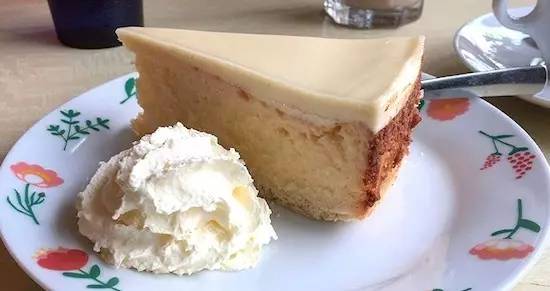
Address: Skolavoerdustigur 22A, Reykjavik
Brunch is business at Pom & Flora.

The Swedish weekend brunch is called "helg frukost". At Pom & Flora, there is a set helg frukost rich package, and guests are welcome to combine freely from the menu, for example, rye bread, yogurt, freshly squeezed ginger juice or cappuccino to start your personalized perfect Saturday in Stockholm!

Address: Bondegatan 64,11629 Stockholm
Professional fresh to establish high quality Drop Co-ffee

Drop Coffee is located in the trendy S dermalm to the south, which is a central area of Stockholm. Drop Co-ffee, as its name suggests, offers drip coffee as well as high-quality beans for many coffee shops in Sweden. Here you can even choose the origin of your favorite coffee and get the cup of coffee in your heart.

Address: Wollmar Yxkullsgatan 10,11850 Stockholm, Sweden
Coffee Collective, one of the best coffee shops in the world

Coffee Collective was founded by four different professions, including water management experts, baristas who used to be architects, and two world coffee champions. Their lightly roasted beans conquered the world's picky taste buds as quickly as Nordic low-key aesthetics, and many famous restaurants such as Noma, such as Geranium, if you ask where the coffee comes from, their answer must be Coffee Collective.

Address: Godth bsvej 34B, 2000 Frederiksberg, Denmark
A baroque tour of Royal Smushi Caf é

The main color of the space in Royal Smushi Cafe is a girl powder full of fairy tale, full of fashionable and elegant baroque elements. All kinds of colorful flower and bird decorations, bold portraits, bling-bling crystal lights.

Address: Royal Smushi Caf é, Amagertorv 6, 1160 K benhavn
Copenhagen Coffee Lab looming in the city

It has a small sense of mystery-enter through an inconspicuous door in the street and pass through the narrow stairs to reach the underground cafe in this "part-time" wine cellar. The beans that echo Lab are not "mainstream goods", but minority high-quality beans selected by Lab owners with experienced coffee background. Each cup is made or filtered with the feelings of the shopkeeper.
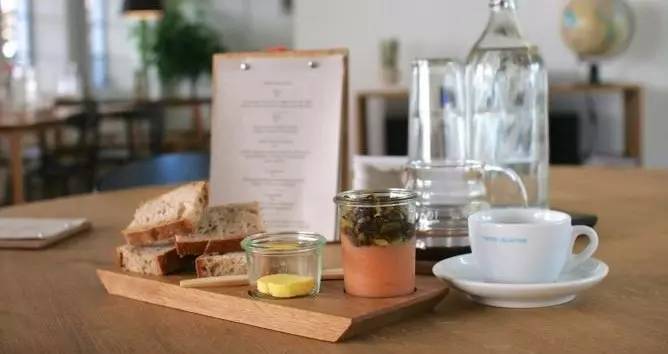
Address: Boldhusgade 6, 1062, Copenhagen
You can't be casual in Good Life Coffee.
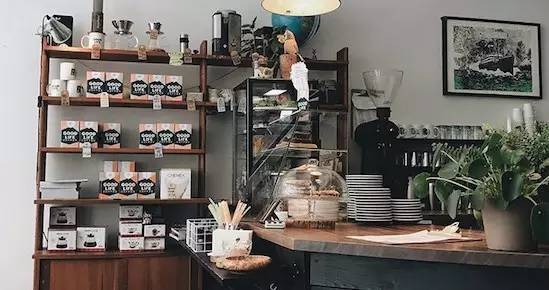
Every day, black coffee in the store sets two different bean options: in addition to home-baked coffee beans, "option 2" is usually beans produced by big-name Nordic roasters Koppi or Tim Wendelboe. The reason for setting the "two" in this way is to stop guests from feeling "just a cup of black coffee".
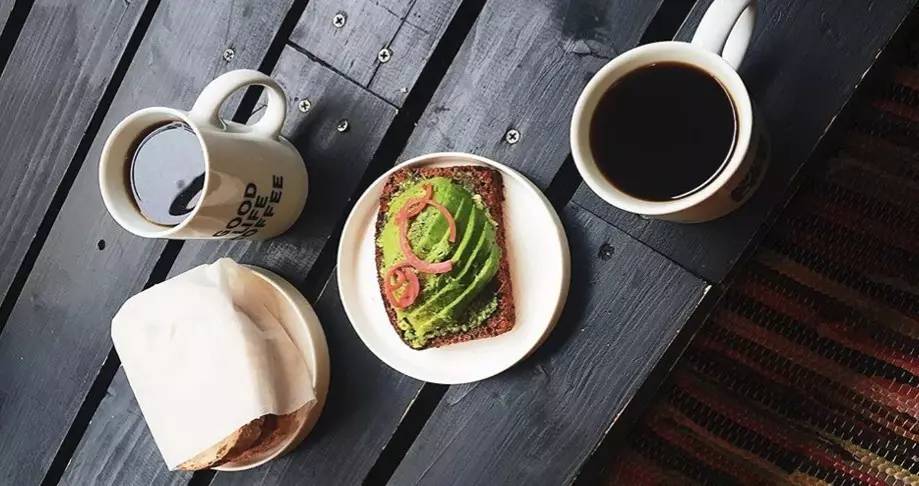
Address: Kolmas Linja 17, Fi-00530 Helsinki
The old-school romance of Caf é Engel
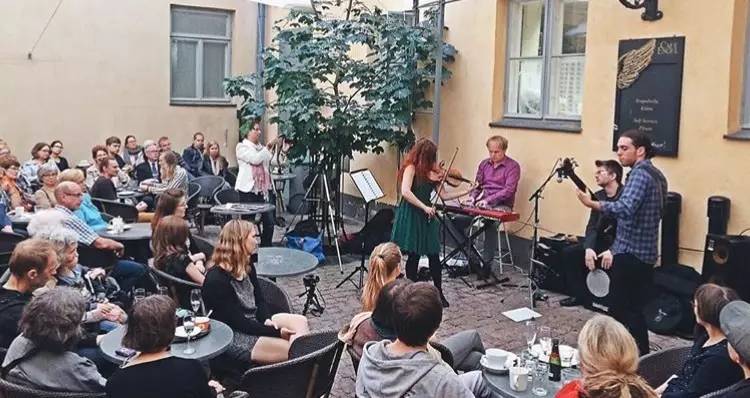
Located on the edge of Senate Square, it is one of the oldest buildings in Helsinki. The first floor of Cafe, built in 1765, is exquisite and upright of the old school. Choose a seat by the window, drink coffee and eat bread and dessert, while watching how Helsinki Cathedral forms a blue-and-white flag color with the sky, enjoying the romance and healing of the old school.

Address: Aleksanterinkatu 26, 00170, Helsinki
(Shao Xueyan / tr. by Phil Newell)
Important Notice :
前街咖啡 FrontStreet Coffee has moved to new addredd:
FrontStreet Coffee Address: 315,Donghua East Road,GuangZhou
Tel:020 38364473
- Prev
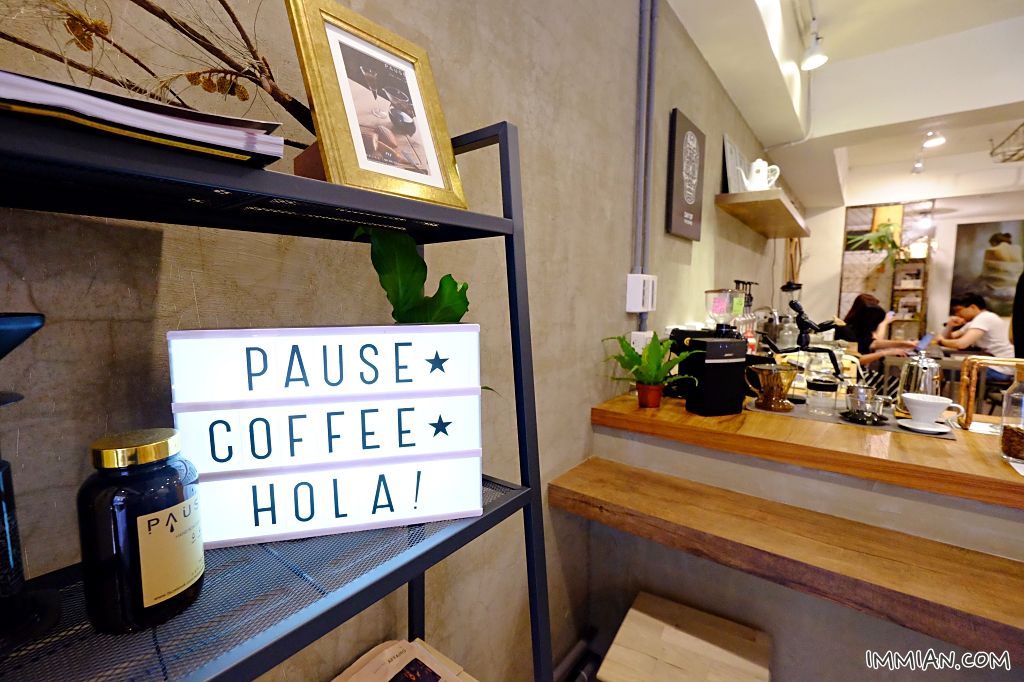
[suspension of studio] A highly recommended coffee shop with excellent coffee taste and great space
Exchange of professional baristas Please follow the coffee workshop (Wechat official account cafe_style) recently saw the introduction of suspending coffee in a friend's blog, immediately catch up with L on the weekend to suspend coffee appointments and write articles. The coffee break near Sanmin Station in Nanjing is really a good place for holidays. It is located in the alley, where there is almost no traffic noise.
- Next
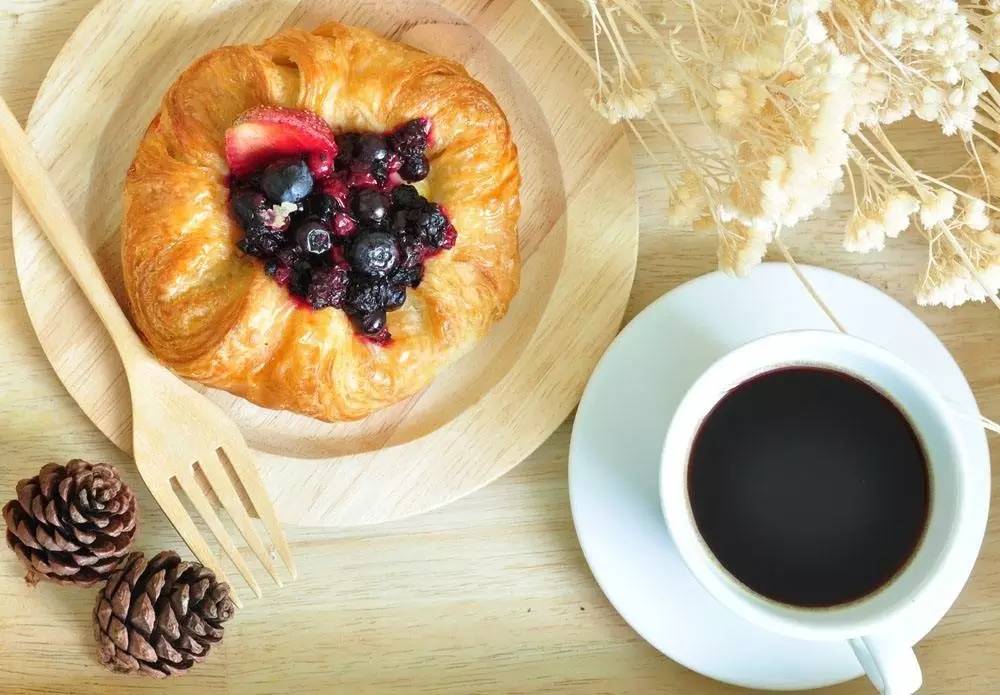
[collection] how should boutique cafes match coffee and dessert?
Professional baristas please follow the coffee workshop (Wechat official account cafe_style) in more and more boutique cafes, you can see more and more varieties, production areas, processing methods of boutique coffee, you can also enjoy a variety of extraction processes: Italian, hand, siphon, ice droplets, cold bubbles, and in these boutique cafes, most of them are of professional quality and
Related
- What documents do you need to go through to open a coffee shop? coffee shop coffee shop certificate processing process
- How to purchase Coffee beans in small Cafe how to choose a suitable supplier for domestic Coffee supply Company
- How to drink Starbucks Fragrance White Coffee? how to make Australian White Coffee? what Italian coffee beans are recommended?
- The Story of Flora Coffee: the name of Flora Coffee Bean and the implication of the Flowers on Florna Coffee
- How much does a cup of coffee cost? How much is the profit of a cup of coffee? What is the profit of the coffee shop in a year?
- Yunnan small Coffee, known as "fragrant Coffee", introduces the characteristics of Alpine Arabica Coffee producing areas in Yunnan, China
- 2023 latest Starbucks full menu price list how much is a cup of Starbucks coffee what is better to drink the most popular hot and cold drinks recommended
- Starbucks different kinds of Coffee Price list Starbucks menu 2023 Top Ten Best drinks in Starbucks
- Starbucks Spring praise Comprehensive matching Coffee Bean theme Story Packaging implication and taste description
- The cost of a cup of coffee latte American coffee cost price and selling price

